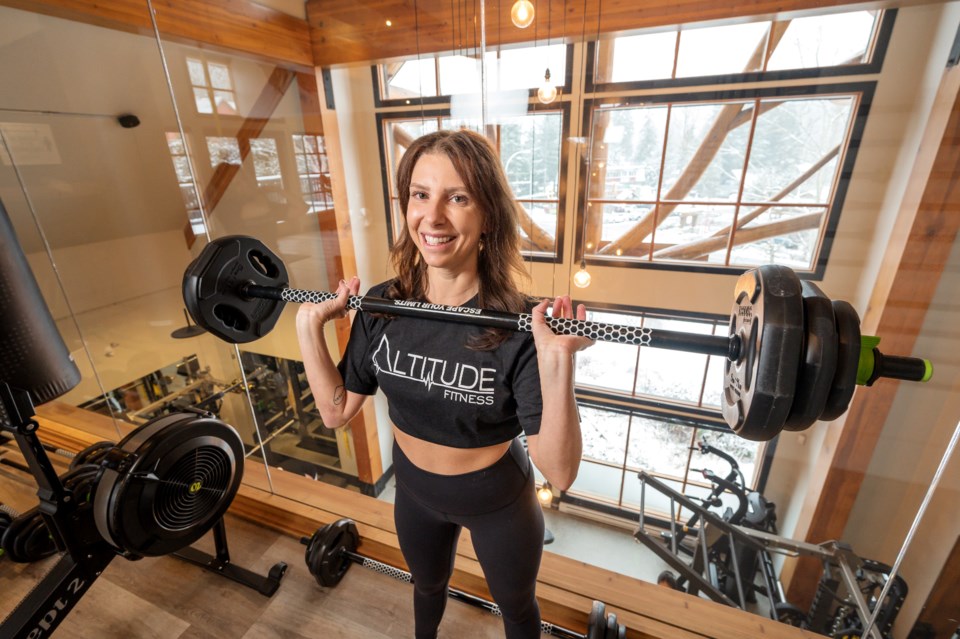It wasn’t long after the Dec. 21 announcement that B.C. would once again be closing gyms and fitness centres that Whistler Creek Athletic Club owner Hannah Edleston’s phone began to explode with messages.
“If you had seen the amount of people who messaged me and emailed me—literally the second it was announced, my phone blew up. I had people messaging me saying, ‘Please don’t close. I need this for my mental health,’” she recalled. “I’m all for public health and safety, but I don’t understand closing something that is vital to not only somebody’s physical health but mental health, which right now is so important.”
While owners Pique spoke with expected some form of restriction to come down this holiday season amidst surging Omicron cases, most were surprised to find out they would have to shut down completely until at least Jan. 18.
“I think we were expecting maybe lower capacity, probably cancelling classes again,” said Katie McFetridge, owner of Altitude Fitness. “But I have to say we were completely blindsided. We did not see this coming.”
For a sector that had to weather a full closure once before in the pandemic, the announcement couldn’t have come at a worse time, as gyms head into the new year, historically one of their busiest periods.
“It’s extremely challenging because in years past we rely on these little surges to increase our member base, and for the first time in years, even though I’ve been open since 2008, we’re struggling to get back the base we once had, so to lose this opportunity is a huge blow,” explained Jordan Glasser, owner of Whistler’s home for CrossFit, Opus Athletics.
Gyms already had to contend with the loss of both members and staff after the first lockdown, many of the latter either pressed to return to their home countries or forced to look for new work with no clear timeline for reopening. Businesses such as gyms, clubs and event venues mandated to close last week are eligible for a one-time provincial relief grant of between $1,000 and $10,000, based on the number of staff they employ. On the federal side, Ottawa has also adjusted its Canada Worker Lockdown Benefit to offer $300 a week to eligible employees in provinces or territories that have introduced capacity-limiting restrictions of 50 per cent or more.
“All my personal trainers, everyone, is out of work and they’ve offered them $300 a week. In Whistler, I’d love to see someone live on $300 a week,” said Edleston, whose Creekside gym is eligible for a $5,000 provincial relief grant, available to businesses of between five and 99 employees, which she said is not enough to cover her overhead costs for a month.
Fitness centres across B.C. have wrestled with the medical logic behind the closures, with some defying the closure order, as venues such as food-primary pubs, cinemas and theatres are allowed to stay open at limited capacities. Last week, Dr. Brian Conway, head of the Vancouver Infectious Diseases Centre, told CityNews he had yet to see the numbers to suggest gyms were a major vector for COVID-19 transmission, but expressed hope the province has a strong case behind the closures.
A change.org petition calling for gyms and fitness centres to stay open that was launched last week has at press time garnered more than 35,000 signatures and sparked a debate over whether gyms should be deemed essential in the pandemic.
According to local gym owners, there’s no question they should be.
“I know the industry is fighting very hard right now to try and overturn that,” said McFetridge. “Whether or not we will be able to open legally before the 18th is a big question in the whole industry’s mind, I think.”
Beyond the clear physical and mental benefits that gyms offer is a sense of community that is hard to replicate over Zoom, argued Lindsay May, owner of Kufuka Fitness, who had to downsize to a smaller studio last year due to the ongoing restrictions.
“One of the most heartbreaking things for me when I shut the studio last year was the connection that it offered people,” she said. “It was an opportunity for people to actually be together and we had important relationships that were formed. We called it our little fitness family."





